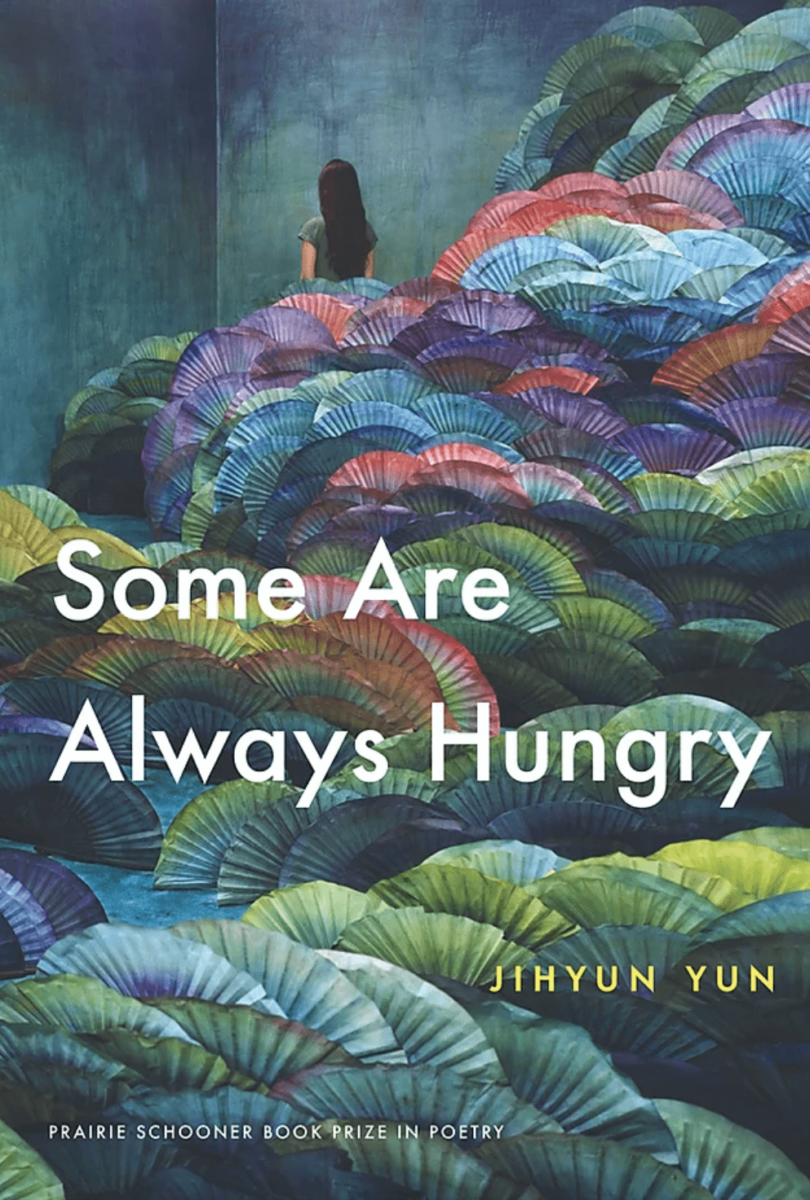Jihyun Yun Weaves Together Softness & Severity in Some Are Always Hungry
The Prairie Schooner Book Prize in Poetry has represented one of the top honors in the genre since its inception in 2003. Like past winners Orlando Ricardo Menes and Kathleen Flenniken, this year’s recipient, Korean-American poet Jihyun Yun, seems poised to powerfully influence the literary landscape.
Yun’s debut, Some Are Always Hungry, depicts a family’s wartime survival, immigrant journey, and intergenerational trauma through the symbolism of food. She considers this theme through many different lenses, presenting food as familial connection, as a link to culture and heritage, as a metaphor for scarcity, and as memory. In many of the poems, the act of cooking serves as a way to conjure lost, faraway relatives and to communicate with them. This elicits both love and pain, foreshadowing an ongoing, complicated relationship between the two. Yun achieves this meditative and heart-rending effect especially well in the recipe poem “War Soup”:
“3. We’ve not long been able to afford this: life-giving flesh, singed wire hair that remembers outhouse and apple core. The fat ripples its own horizon, studded white over pink meat, cartilage wedged there where the muscle gathers. Cut the slabs into mince, light those dented pots. 4. Dear family I left behind / in the northern province of my birth, / do you leave as I feed and am fed / have they given you to the sea?”
Like many others in the collection, this poem both uses and disrupts form to reinforce meaning. The several recipe poems juxtapose the dry, instructional nature of recipes with raw emotion and poignant questions that pierce through this typically technical writing style. Their careful steps also mirror a ritual. While the recurring recipe poems are mostly prosaic, other poems showcase Yun’s incisive knowledge of line breaks and purposeful punctuation. In “Husband Stitch,” for example, Yun continually ruptures the poem with dashes, hyphenated words, caesuras, and sentence fragments:
O tell me oh, tell—
me how to keep sun from spilling—
from all my man-made seams—
The woman’s wellbeing—
born to be split plum skinned—
Once again, these stylistic choices reflect the poem’s subject matter. Just as a woman is stitched together after childbirth—the experience that this poem comments on—Yun attempts to stitch together language, finding meaning in its gaps and silences. The descriptions of women as “split” and “plum skinned” hint at another major theme of the collection: the consumption of women and the politicization of the female body.
Throughout the collection, speakers often characterize women as “fleshy,” “sweet,” “seedless,” and “bloody,” or—even more directly—as “meat.” This parallel comes across most clearly in “All Female”:
“They are always sweeter, more pricey / Halmeoni says, pulling the last / claw from the last crab, stumps / still writhing in the sink. She dismantles / the breast next and what pulsates / inside is all gully and wet. / It is always the girls. / For everything, / When was the last time you’ve heard / of rooster soup? / We put the bodies / to boil in salt and broth.”
This description foreshadows violence: animals “writhe” and “pulsate.” It also blurs the line between animal and woman, illustrating a dehumanization of women that Yun evokes again and again. The collection’s speaker feels consumed and dehumanized by lovers, by those who fetishize Asian women, and by a surrounding society that does not empathize with her experiences. Yun explores female sexuality as currency, grappling with one of the core questions of Some Are Always Hungry: What would someone be willing to do in order to survive?
The poems in this book answer this question with accounts of both submission and cruelty. The speaker is the recipient of harm from those who have more societal power, yet she also inflicts harm on powerless creatures. She wrestles with the consumption of her body, as well as the ethics of her own consumption and hunger. This nuanced portrayal of morality gives rise to a second key question: How do people live in the messy aftermath of survival? Some Are Always Hungry resists offering a clean-cut path or reconciliation, but instead realistically hovers in the unsettling space between anguish and peace.
Order Some Are Always Hungry here.




